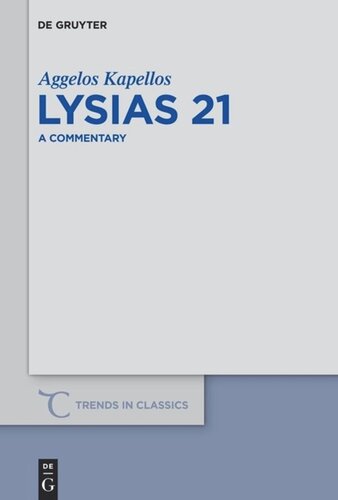

Most ebook files are in PDF format, so you can easily read them using various software such as Foxit Reader or directly on the Google Chrome browser.
Some ebook files are released by publishers in other formats such as .awz, .mobi, .epub, .fb2, etc. You may need to install specific software to read these formats on mobile/PC, such as Calibre.
Please read the tutorial at this link: https://ebookbell.com/faq
We offer FREE conversion to the popular formats you request; however, this may take some time. Therefore, right after payment, please email us, and we will try to provide the service as quickly as possible.
For some exceptional file formats or broken links (if any), please refrain from opening any disputes. Instead, email us first, and we will try to assist within a maximum of 6 hours.
EbookBell Team

4.1
80 reviewsLysias’ 21st speech “On a charge of taking bribes” is an important example of Attic oratory that sheds significant light on Classical history and society. Delivered after the restoration of democracy in 402 B.C.E., this speech provides information that is critical for our understanding of the relationship between the Athenian demos and aristocrats, Athenian civic institutions (e.g., taxation, liturgies and conscription), religious beliefs, moral values, political behavior, and, in particular, of the legal and rhetorical treatment of embezzlement and bribery. It also supplies unique information about the military engagement of the Athenians at Aegospotami and the role of Alcibiades in the political life of Athens. Despite its importance, however, Lysias’ speech has never been the subject of an extensive study in its own right. This volume seeks to fill that gap by presenting the first systematic commentary on this speech. The author puts much emphasis on its structure, strategy, and argumentation, focusing especially on the tension between the actual practices of the anonymous client of the logographer and civic ideals invoked in the present case. The book is intended to be of interest to classicists, ancient historians and political theorists, but also to the general reader.